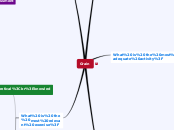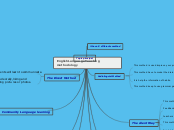by Sarah Hudson 6 years ago
204
Sample Mind Map
The material discusses three distinct pedagogical approaches in the teaching of English: Didactic, Authentic, and Functional. Didactic pedagogy emphasizes foundational skills and knowledge prescribed by syllabi, focusing on language rules and conventions, especially for standardized tests like NAPLAN and HSC.









